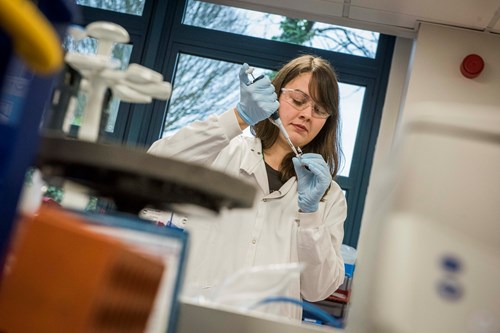
Highland scientists research global health risks for animals and humans
With climate change, Covid-19 and Avian Influenza posing risks to people, animals and the planet, scientists at Scotland’s Rural College (SRUC) are expanding their focus to help assess future public health threats.
Researchers at the newly named Centre for Epidemiology and Planetary Health (CEPH), which forms part of SRUC’s Northern faculty based in Inverness, are conducting research into disease links between animals, humans and the environment.
The CEPH team is currently engaged in national and international scientific studies to improve the health of livestock in both agriculture and aquaculture, as well as being involved in a range of studies investigating the health of wild animal populations.
The centre is also a major focus for research excellence in disease surveillance including zoonoses – diseases which can be transmitted from animals to humans – with the aim of providing integrated solutions through an overarching ‘one health’ approach.
The SRUC scientists are recognised for their expertise in disease surveillance and control, veterinary public health, genetics, molecular, vector, pathogen biology and One Health.
Social science, data, statistics and quantitative epidemiology also form part of the large-scale field studies conducted by the centre to investigate the epidemiology of infectious and non-infectious diseases.
Significant ongoing research includes work on foodborne zoonoses, especially shiga-toxingenic E. coli, tick-borne Lyme disease, antimicrobial resistance and production diseases in cattle, sheep, pigs and farmed salmon.
The CEPH team will play an important role in the new SRUC School of Veterinary Medicine which is being developed across Scotland. A new Master of Research (MRes) in Zoonoses and Epidemiology on Animal Infectious Diseases is currently being delivered, largely by distance learning, from SRUC’s base in Inverness.
For more information, visit: Centre for Epidemiology and Planetary Health (CEPH).
The research carried out by CEPH, a multidisciplinary team, is funded from a range of sources including research councils, charities, and industry. However, CEPH also receives funding from the Scottish Government to support research for sustainable agriculture and understanding the environment, through Rural and Environment Science and Analytical Services Division (RESAS) – a strategic research programme. Similarly, the CEPH team form an essential part of Scotland’s Centre of Expertise on Animal Disease Outbreaks (EPIC) providing advice to the Scottish Government on disease risk, incursion, and control strategies.
Centre staff members are currently located at An Lòchran on Highlands and Islands Enterprise’s Inverness Campus and will eventually relocate to the new Rural and Veterinary Innovation Centre which is currently under construction on the city campus. The building project has received £6 million from the European Regional Development Fund Scotland Programme and a £4.2m financial transactional loan from the Scottish Funding Council.